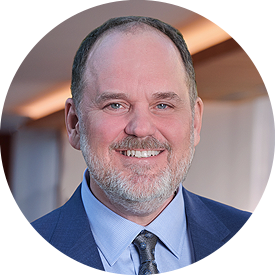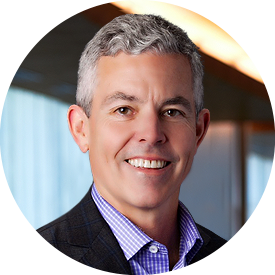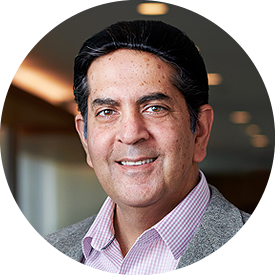If your healthcare provider has just told you that you have chronic kidney disease (CKD), it can be a shock to the system, especially if you have no symptoms or signs of kidney damage.
Every year, more than 100,000 people in the U.S. are diagnosed with CKD. Many people only find out about their kidney damage during stage 3 or later stage CKD.
Find out how you can take charge of your medical care and help slow the progression of kidney damage.
Key Points
- The more you know about how your kidneys work, the stages of CKD, and the estimated glomerular filtration rate (eGFR), the better equipped you will be to participate in your care.
- Work with your doctor to develop a CKD care plan to help slow disease progression and empower you to take better control of your health.
What is Chronic Kidney Disease?
The kidneys play an important role in the body by filtering the blood and removing waste products and excess water, which is then removed from the body via urine.
CKD occurs when your kidneys lose their ability to function properly due to lasting damage. If the kidney damage is severe, your kidneys stop working, necessitating dialysis or a kidney transplant. Late-stage CKD can lead to a build-up of waste products and excess water in the blood, which can cause other health conditions such as hypertension (high blood pressure) or cardiovascular disease (heart disease).
The two most common causes of CKD are hypertension (high blood pressure) and diabetes. Other causes of CKD include kidney cancer, glomerulonephritis, lupus nephritis, and polycystic kidney disease.
The First Signs of Kidney Problems
You may not notice any symptoms of kidney damage in the early stages (Stages 1-3) as the kidneys are still working relatively well. As CKD progresses, the kidneys lose their functionality, resulting in waste products and water no longer being effectively filtered out of the blood. During the later stages of CKD, you may begin to notice some symptoms, such as:
- Muscle cramps
- Trouble sleeping (insomnia)
- Itching
- Not feeling hungry
- Nausea or vomiting
- Trouble catching your breath
- Urinating less or more often than usual
- Swelling in the ankles or feet
If you have just been told that you have CKD, the main treatment and management goal will be to slow disease progression.
Know your test results and CKD stage
Knowing what has caused your CKD and what stage you are in is important. Your doctor or nephrologist will do tests and further exams to determine how well your kidneys function.
Checking kidney function is quick and easy with two tests:
- A urine test called the urine albumin-creatinine ratio (uACR)
- A blood test called the estimated glomerular filtration rate (eGFR)
The results of these two tests will show the amount of damage to the kidneys and your eGFR, which shows how well the kidneys filter waste and water out of the blood. These tests provide health providers with a clear picture of your kidney health.
In some cases, additional tests, such as imaging, a kidney biopsy, other urine and blood tests may be ordered to get more information about the kidney’s health.
By learning your stage of CKD, you can take an active role in your healthcare, which has been shown to improve overall outcomes.
How Can You Manage Your CKD?
As damage to the kidneys is irreversible, the goal of treatment and management is to slow or prevent disease progression to kidney failure. The underlying cause of the kidney damage and any associated conditions caused by CKD also need to be treated.
One way to feel confident in your plan to manage and treat your kidney disease is to take an active role in your care. Some ways you can take an active role in your care include:
- Follow your doctor’s instructions: You will be prescribed medicines and recommended lifestyle changes, such as modifications to your diet.
- Ask questions: If you do not understand anything about your diagnosis or treatment plan, ask your doctor or talk to them about anything that might prevent you from following their instructions.
- Know when you need to see your nephrologist: Your doctor may recommend that you see a nephrologist (kidney doctor) when you are at a stage 3 or 4, depending upon a number of factors, such as labs, changes in symptoms, management of complications, or determining the cause.
- Keep track of your changes or symptoms: Keep track of any signs and symptoms you experience, even if you do not think they are significant. Tell your doctor about them.
- Keep track of your medications: Tell your doctor about all the medications you take, as some of them may not be suitable for you if you have CKD.
- Understand the kidney-heart connection: The kidney and heart are related as CKD is a risk factor for heart disease, and vice versa.
- Learn about treatment options for kidney failure: If you are in late-stage CKD (stage 4-5), ask your nephrologist about the different treatment options for kidney failure so that you can choose the best option for your daily life.
- Ask for help: Finding out that you have CKD, especially if it is already in the late stages, can be a shock. It is normal to struggle with all the necessary lifestyle changes, and you may need additional support both mentally and physically. Don’t be afraid to ask your doctor or nephrologist for help.
Managing Emotions and Coping with the Stress of a CKD Diagnosis
Finding out you have CKD may be a shock. You may have to implement lifestyle changes, and this can often be overwhelming. It is normal to experience a range of emotions after an unwanted diagnosis.
If you are unsure about what you need to do after your CKD diagnosis, try:
- Play an active role in your treatment: Ask your nephrologist questions and reach out to your care team when you need help. By being active in your treatment, you can help improve your overall outcomes.
- Find a support network: there are resources and communities available that may help you in your CKD journey.
- Understand and manage your emotions: talk to your care team or nephrologist about how you can cope with the stress and lifestyle modifications of a CKD diagnosis.
Panoramic Health
Panoramic Health is an integrated provider group delivering the future of kidney care. It is our mission to improve outcomes for patients by slowing disease progression and improving quality of life. We do this through the distinctive capabilities of the comprehensive care model, which brings together an integrated provider group with clinical support, operational, and data & analytics excellence at scale.
Through partnerships with practices, providers, payers, and health systems, we work to advance the usage of clinically validated best practices and cutting-edge data analytics across a continuum of reimbursement models.
*No information presented here should be construed as medical advice. Every patient is unique, and patients should consult a qualified physician to determine what is best for them.















